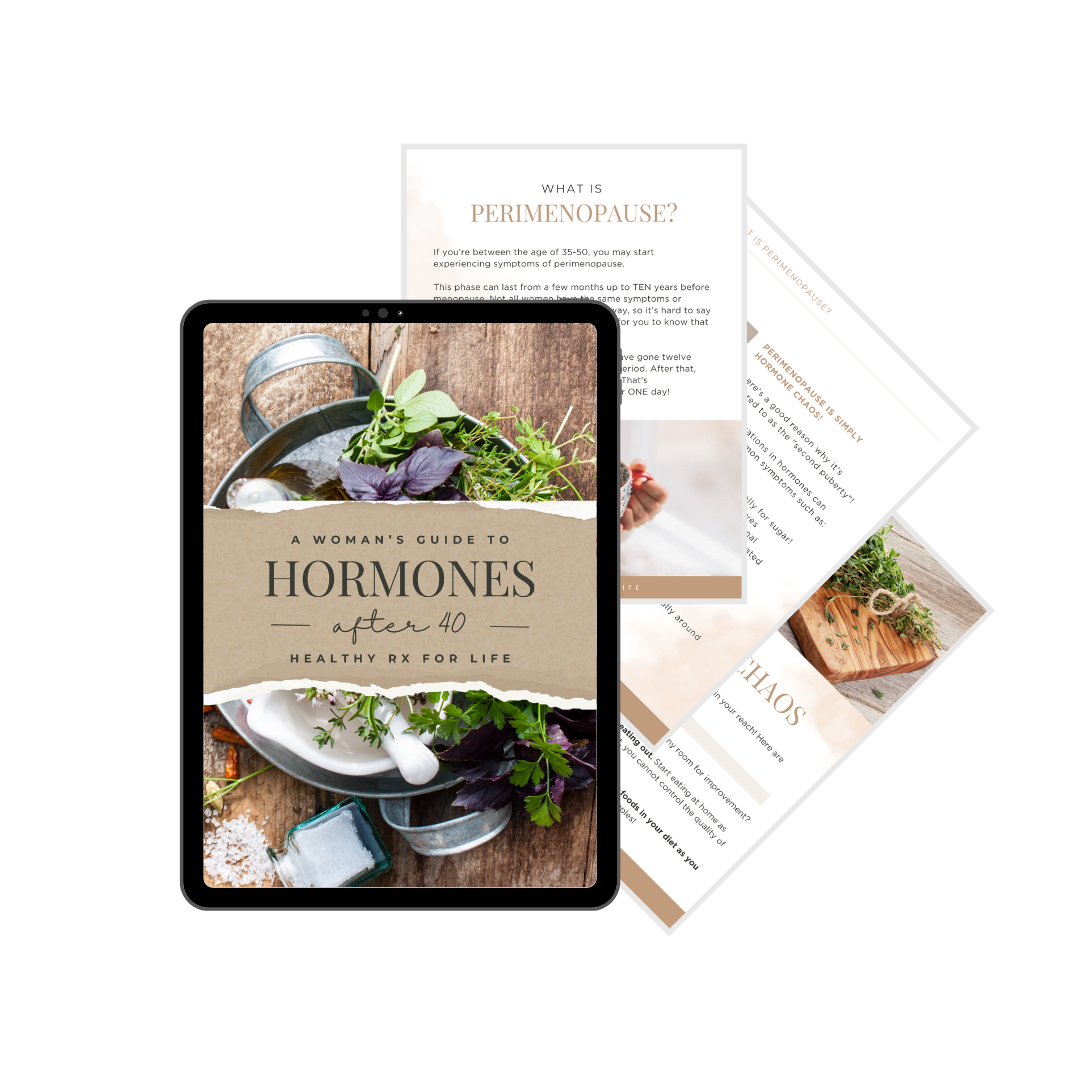We have all heard of menopause, but what exactly is perimenopause?
And more importantly, how do you know if you’re in it?
What is Perimenopause?
Perimenopause is the period in a woman’s life when she is transitioning into menopause, which is the end of menstruation and reproduction.
It might surprise you to learn that this transitional phase can begin up to TEN years before officially entering menopause!
Menopause is formally diagnosed after one entire year without a period. However, the rather dramatic shift and change in hormones that occurs during the transition can lead to a few uncomfortable and frustrating symptoms.
The symptoms can vary significantly from one woman to the other, and some women may not experience any symptoms at all. Women begin perimenopause typically around the mid-thirties to forties. However, factors such as genetics, smoking, autoimmunity, thyroid disease, and specific medical treatments can cause this transition to begin even earlier.
It’s important to understand that even if you don’t experience many symptoms, this transitional period is a critical time for the prediction of future health.
That is, many small health issues, if not addressed, can amplify into larger and more permanent health issues later on in life.
On the flip side, perimenopause gives you an important window of opportunity to make small changes that can reap HUGE benefits in your future health!
Common Symptoms in Perimenopause
Perimenopause can bring with it a smorgasbord of unpleasant and frustrating symptoms:
- Anxiety
- Cravings, especially for sugar
- Dry skin, hair and eyes
- Feeling overly emotional
- Feeling tired or unmotivated
- Hair loss
- Hot flashes
- Irregular periods
- Mood swings
- Night sweats
- Bloating
- Trouble sleeping
- Weight gain (especially around the belly!)
Conventional Treatment of Perimenopause Symptoms
Usually, women are either given low-dose estrogen pills or hormonal birth control pills that contain both estrogen and progestin (FYI progestin is NOT progesterone!).
Women are also often given an antidepressant for mood swings and hot flashes and/or weight loss pills for weight gain.
But what do all these conventional treatments have in common?
They DO NOT get the root cause!
Get to the Root!
Contrary to popular belief, you do NOT correct a hormone imbalance by simply adding more hormones.
In order to truly calm the hormone chaos, you have to start with the basics:
Gut Health
Addressing gut health is the first step to balancing your hormones. A healthy gut is essential to hormone health! This means checking nutrient absorption status, looking for any microbial imbalance, addressing hidden food sensitivities and correcting constipation.
Adrenal Health
Chronic stress can wreak havoc on hormone health! Excess cortisol can affect nutrient absorption, thyroid hormone production, and insulin production, which can lead to insulin resistance and weight gain.
Liver Health
Supporting your detox pathways is important to maintaining proper hormone elimination. This is done by reducing toxin exposure in both your food and environment along with boosting nutrient absorption with anti-inflammatory foods and supplements.
Sex Hormone Health
The steps above are usually all it takes to being your sex hormones back in balance! However, if hormone replacement is still necessary it’s best to consult with a practitioner well versed in bioidentical hormone replacement.
What does getting to the root look like?
It all boils down to making simple yet sustainable lifestyle changes (I like to call them upgrades!) that fit YOUR unique needs and goals.
Lifestyle upgrades such as:
Eliminating CRAP Food
Carbonated, refined, artificial and processed foods make up the majority of our modern day diet. Sure, they are cheap and convenient but they are also nutrient poor. Your body (including your hormones!) NEED nutrients for optimal health.
Managing Chronic Stress
We live in a go faster, do more lifestyle that leaves little time for rest and relaxation. However, we can’t live a chronically stressed lifestyle and expect to thrive.
Reducing Toxin Exposure
Toxins can come in many forms. They can come from the environment, from food, even from household cleaners and beauty products! We are designed to manage and excrete toxins naturally through our urine, stool, sweat, saliva, and hair. However, toxin tolerance looks different for everyone. Exposure that is toxic to one person may have no effect on another.
Are you ready to get to the root of your perimenopause symptoms?
Grab your favorite cup of herbal tea and join me for a Custom Hormone Consult. During this 60 minute chat, I will educate, inspire and empower you to take control of your hormones and find your perimenopause bliss!






